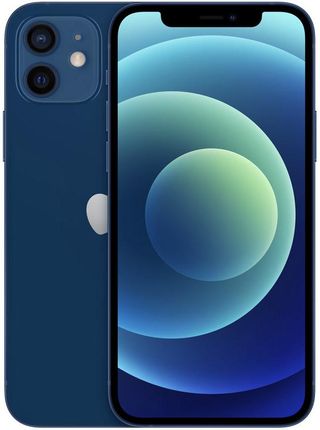Why Apple's influence is both a boon and detriment to the smartphone market at large
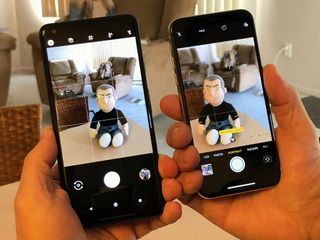
Apple has a massive influence on the smartphone market. The first iPhone was groundbreaking, revolutionary even. With the emergence and growth in popularity, Android has become a worthy competitor and really the only other choice if you don't want to walk the iOS road. There are plenty of Android phones to choose from, each with its own special touch from the manufacturer (for better or worse), since Android is open.
One could argue that at this point, the influence goes both way between iPhone and Android. iPhone was the first to implement 3D Touch (Force Touch), and Samsung developed something similar that debuted on the Galaxy S8. The iPhone X display was made by Samsung (albeit tweaked and perfected by Apple). There's a bit of a give-and-take happening now, since Android is getting bigger and better all the time.
But Apple still walks tall as a sort of gold standard among smartphone makers, and at this stage in the game, I don't really dig it, nor do I dig what the future might hold. And rumors surrounding Android P have me fretting a little.
iOS: There can be only one
Apple's operating is succinct, elegant, and a bit bland if you ask me. But it does exactly what it's supposed to, with minimal effort and minimal learning curve. Android, depending on the phone manufacturer, can be clunky, bloated, and sometimes just a complete mess (LG G5, anyone?). But Android is at its worst when it tries to emulate or downright copy iOS.
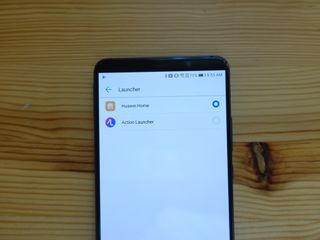
The worst culprit? Huawei's EMUI. Now, I don't really enjoy the iOS user experience at the best of times (too restrictive, things don't work as intuitively as some Android features), but Android with an iOS dress on is just lipstick on a pig. EMUI, which Huawei implements on most of its branded devices as well as its Honor subsidiary's devices, is a sort of iOS/Android hybrid, with fairly elegant, clean-looking app icons (for the most part), but some confusing features and a Settings app that looks like it was a rush crib job off of the iPhone's Settings. Huawei's phones still work just like Android (aside from some weird lock screen notification restrictions), but the look is a jumbled mess.
If anyone really wants their Android phone to look like an iPhone (just buy a f**king iPhone, ya goof!), there are launchers for that.
That damn notch
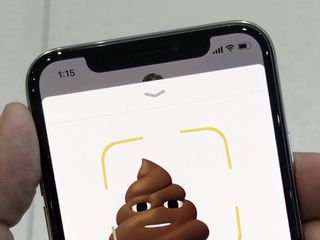
"Your scientists were so preoccupied with whether or not they could, they didn't stop to think if they should." The divisive (ugly, in my opinion) notch on the iPhone X is a strange design choice that has been a dealbreaker for some and a complete non-issue for others. I was fine with it, because I'm not an iPhone user, but ohhhhh looky here! Look! LOOK.
Master your iPhone in minutes
iMore offers spot-on advice and guidance from our team of experts, with decades of Apple device experience to lean on. Learn more with iMore!
Android P will feature a 'dramatic redesign' and support notch displays (Android Central)
See what you've wrought, Apple? Android users laughed (because who really bought the frickin' Essential Phone), presumably safe from the "horns". NAWP. Android P's getting a radical redesign and it's going to support notched displays.
Where will you go when all your phones are belong to notch?
I bet you this Galaxy S8 on my desk that Samsung's coming out with a notched phone in the next year or two. Bank on that. And then what? Then nowhere is safe from the notch. This is that South Park election episode all over again. We're gonna have to choose between a giant douche and a turd sandwich, and the worst part is that we will. I will. Because we have no other choice.
I know this seems like a lot of doomsaying and melodrama, but non-fans of the iPhone X, I ask you: Where will you go when all your phones are belong to notch?
Bye-bye, fingerprint sensors
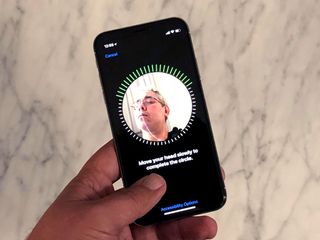
Oh, it's gonna happen. Samsung uses iris scanners and facial recognition already. Face ID is the iPhone X's main unlocking method (Input a code like an animal? No thank you!). The Honor View 10 has implemented face unlocking features, and it's only a matter of time as more and more Android manufacturers follow suit.
There have been rumors swirling for a few years now about fingerprint sensors beneath the screen, and one Android phone maker has already implemented that feature on its forthcoming phone, but I honestly can't see that being implemented en masse by Android manufacturers. That being said, it's not like Face ID is easy to copy (30,000 dots don't lie!).
It'll be a sad day when fingerprint sensors go the way of the dodo, but the fun part is that there's nothing we can do to stop it. Just like that other "relic" we recently lost…
They jacked my headphone jack
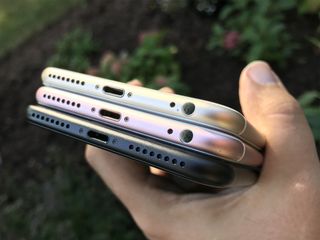
The iPhone 7 brazenly dropped the 3.5mm headphone jack (the Moto Z was the first phone to do it, but come on — it was the iPhone). The world gasped. Pursists fainted. Those looking to the future fist-pumped. The rest of us sat around and wondered the cost of a decent pair of Bluetooth headphones.
Bluetooth audio has come a long way over the last few years, but there's still something reassuring about a wired connection.
Then Google released the Pixel and openly mocked Apple in its marketing. Then the Pixel 2 was revealed to be sans headphone jack, and Apple (silently) screamed "I told you so." Samsung has yet to drop the jack on its flagships, but we all know that's just down the pipe. HTC has ditched it on its latest phones. It's coming for us all — it's just a matter of time.
Not that I'm overly concerned: Bluetooth audio has come a long way over the last few years, but there's still something reassuring about a wired connection and that final tether to the past being snipped is somewhat disconcerting. That or I'm a big ol' luddite and should just suck it up.
An SoC to be coveted, marveled at, and emulated
There's no denying that Apple's chips are to Android makers' chips what Pringles are to Lays. They're both pretty good, but Pringles fits more chips in a smaller container (and they're stackable!). Specs are all but meaningless when it comes to Apple's chipsets because its engineers are somehow able to do so much more with less when compared to Android chips. The day an Android manufacturer discovers how to marry Apple's engineering with Google's OS will be a sad day for Apple indeed, but I don't see it happening.
Apple is (and may always be) king of updates
Something that's irked me since I switched to Android three years ago is the sloth-like speed with which Samsung puts out Android updates. Because Android is open and each manufacturer has its own version, it takes them forever to get the latest updates out to every device in their repertoire. Apple's update system is by far the best thing about it and the feature I'd like to see aped the most in the Android world. That fact that every iPhone or iPad gets the same update at the same time is convenient, it's secure, and it's so much more fun when a new OS is released. I've been waiting on bloody Oreo since last August!
Google is starting to crack down, finally, announcing that, starting in August 2018, all new apps will need to target Android Oreo.
As a result, companies who sell phones with old versions or forget about those phones when it comes time to update them will stand out because the products won't have access to new or newly updated apps. Google says they encourage developers to do what they can to make apps backward compatible, but we all know how things go when they're only suggested or encouraged. (Jerry Hildenbrand, Android Central)
That's heartening, but not quite enough. Hopefully Google continues to work toward faster Android updates, because I'm getting kind of sick of waiting for what other Android users have, especially when I'm using one of the "best flagships on the market".
The lines begin to blur
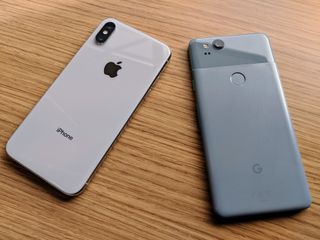
Russell Holly wrote a great piece on just how similar iPhone and Android are becoming, and that's truer and truer all the time. You can get Portrait Mode in iPhone and Google Pixel 2, and each has top-notch cameras, AR, and more. So as the lines blur, is it such a big deal anymore? I see the scales shifting in the future, where Apple is influenced more than it influences, but for now, it still takes those risks before Android makers are ready to. Are the differences only slipping away because of a lack of vision on Apple's part since the death of Steve Jobs? Maybe. Is it because we've reached a point where we're finished reinventing the wheel? Probably.
What do you think?
Sound off in the comments below!
Mick is a staff writer who's as frugal as they come, so he always does extensive research (much to the exhaustion of his wife) before making a purchase. If it's not worth the price, Mick ain't buying.
Most Popular




